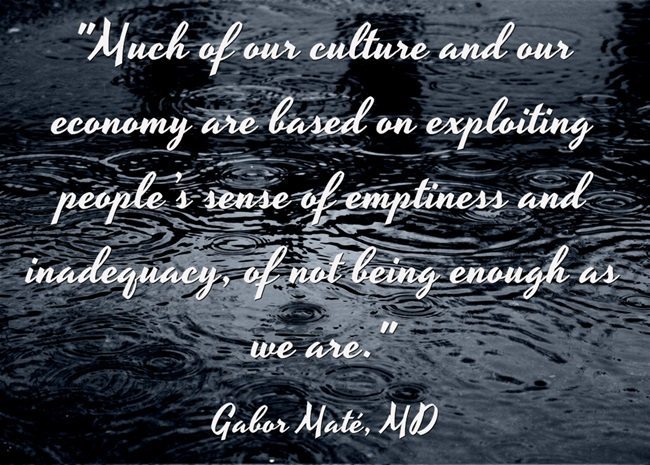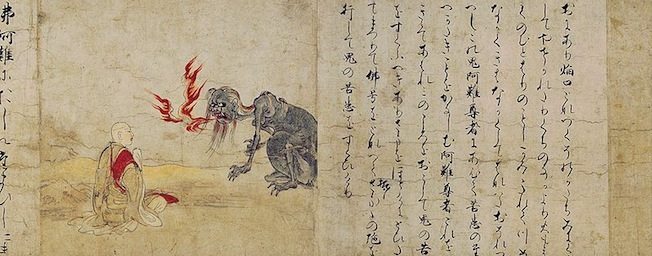![By Challiyil Eswaramangalath Vipin from Chalakudy, India (cigarette.. like a cigarette in the rain) [CC-BY-SA-2.0 (https://creativecommons.org/licenses/by-sa/2.0)], via Wikimedia Commons](https://www.northatlanticbooks.com/wp-content/uploads/2014/02/Cigarette_smoke.jpg)
Genes Do Not Cause or Maintain Addictions, Says Dr. Gabor Mate
Categories: Society & Politics
In the following interview, Gabor Maté, MD discusses his work in Vancouver’s Downtown Eastside with patients challenged by hard-core drug addiction, mental illness and HIV, and sheds light on the motivations behind his book, In the Realm of Hungry Ghosts.
As we know, addiction is a complex problem that can have devastating consequences for individuals and society as a whole. There are many different factors that can contribute to addiction, including genetics, environment, and personal experiences. However, one of the most important factors is the way that we view addiction. If we see addiction as a moral failing or a weakness of character, then we are less likely to seek help for it.
In this insightful interview with Gabor Maté, MD, a renowned physician and author, the profound impact of addiction on individuals and society is unveiled with honesty and empathy. From shedding light on the motivations behind his book, “In the Realm of Hungry Ghosts,” to discussing the intersection of biology, environment, and addiction, Dr. Maté provides a comprehensive perspective on the subject.
Q. The title of your book has its origins in the Buddhist Wheel of Life. In the Hungry Ghost Realm, people feel empty and seek solace from the outside, from sources that can never nourish. In what ways is our culture trapped in this realm? What can society learn from drug addicts who take the feelings of lack that everyone has, to the extreme?
A. Much of our culture and our economy are based on exploiting people’s sense of emptiness and inadequacy, of not being enough as we are. We have the belief that if we do this or acquire that, if we achieve this or attain that, we’ll be satisfied. This sense of lack and this belief feed many addictive behaviors, from shopping to eating to workaholism. In many respects we behave in a driven fashion that differs from the desperation of the drug addict only in degree.
Q. You allude to the fact that many doctors and addiction specialists don’t incorporate research about brain development during early childhood into treatment practice even though new research shows that the emotional experience of children and babies (even in utero) can actually cause or prevent addictive tendencies. Why do you think this chasm between medicine and science exists, and why might people be hesitant to accept this information?
A. As Dr. Bruce Perry, pediatrician, researcher and Head of the Houston Child Trauma Academy points out, the medical profession is fundamentally conservative in its outlook and intellectual habits. Modern medical practice is based on a narrowly biological view of human beings which ignores the mind-body unity, the influence of the environment on brain development, and the life-long interactions of emotions and brain processes. In short, our practice lags decades behind our science.
Q. The patients you profile in this book have such compelling personalities, and you describe them with such truth, honesty and compassion. What are some of the personal and professional challenges that you faced with your clients but don’t discuss in your book?
 A. Truly I’ve given as complete a picture of my addicted Skid Row patients and my relationship with them as I could. I doubt anything has remained unsaid, except perhaps for the anger I feel sometimes at the incomprehension of policy-makers who refuse to consider the human and scientific evidence when it comes to addiction.
A. Truly I’ve given as complete a picture of my addicted Skid Row patients and my relationship with them as I could. I doubt anything has remained unsaid, except perhaps for the anger I feel sometimes at the incomprehension of policy-makers who refuse to consider the human and scientific evidence when it comes to addiction.
Q. What makes your book so beautiful is its multi-layered, personal approach. You don’t rely solely on your patients’ stories, but also dig into your personal experience with addiction and the relevance of Buddha’s teachings. What were some challenges you faced when writing so frankly about your own addiction and your family? How long did it take to write?
A. Given that I continued to work as a physician most of the time that I was writing the book, and given all the research that I had to correlate with the human stories I was committed to telling, it did take a long time. About three years, or so. As to writing about my personal issues, in a sense they’re not personal at all—just human. Once I understand something, I want to share it. There is no shame in having flaws—just challenges to keep learning.
Q. In your chapters on the science of addiction, you introduce the new field of epigenetics, or the influence of life experience on the function of gene expression. Is this a move away from simplistic nature vs. nurture genetic arguments about how addiction develops? How has it influenced research on brain chemistry and neurobiology? How has this growing body of knowledge been treated by the mainstream media?
 A. For the most part the media is still prone to accepting a simplistic genetic view of things, the concept that complex human behaviors and emotional patterns can be explained by the influence of genes. Scientifically this is nonsense, but unfortunately it’s a view shared by many physicians. Genes are turned on and off by the environment and, on their own, they cannot determine the course of a person’s life and development. Epigenetics studies how the environment regulates the action of genes. There is no evidence, contrary to the widespread medical consensus, that genes can cause or maintain addictions.
A. For the most part the media is still prone to accepting a simplistic genetic view of things, the concept that complex human behaviors and emotional patterns can be explained by the influence of genes. Scientifically this is nonsense, but unfortunately it’s a view shared by many physicians. Genes are turned on and off by the environment and, on their own, they cannot determine the course of a person’s life and development. Epigenetics studies how the environment regulates the action of genes. There is no evidence, contrary to the widespread medical consensus, that genes can cause or maintain addictions.
Q. You discuss how harm reduction efforts diminish several dangers that many addicts face including disease and jail time. Studies show that safe injection sites, heroin prescriptions and other harm reducing efforts have had positive effects on the lives of individuals. How does harm reduction and decriminalization benefit society as a whole?
A. It’s straightforward. A person who is given sterile water to inject with does not use puddle water, hence has less of a risk of falling ill. A person given a clean needle will not infect herself with HIV from a shared needle. A person dispensed heroin or methadone or hydromorphone under medical supervision does not need to commit crimes to support his habit. Medical costs, legal costs, economic losses from crime are all greatly reduced. And, there is much less suffering.
Q.There are many ways in which the War On Drugs causes and perpetuates the hardships that addicts experience – including addiction itself. The King County Bar Association in Washington released a statement denouncing disastrous effects. Are there any other legal or criminal justice associations that have publicly criticized the War on Drugs?
A. Many associations and also individuals in, or formerly in, the legal system have made humane and rational proposals towards ending the War on Drugs—see such outstanding individuals as former Seattle police chief Norman Stamper. Even the current White House drug tsar, himself a former Seattle police chief, has spoken of at least dropping the terminology of a “War on Drugs.”
Q. Your book ends on a positive note, with the idea that brains do have the ability to change and grow in adult life and even to heal themselves. Does this undermine your previous assertion that you don’t expect most of your severely addicted patients to get clean?
A. No, there is no contradiction here. The human brain is exquisitely capable of development, a capacity known as neuroplasticity. But, as with all development, the conditions have to be right. My pessimism about my clients’ future is based not on any limitation of their innate potential, but on their dire social, economic and legal situation and on the essential indifference of policy makers—and of society—to their plight. In short, the resources that could go into rehabilitating people are now sunk, instead, into persecuting them and keeping them marginalized. It’s a failure of insight and of compassion.
Gabor Maté, MD, is a physician, author, seminar leader, and acclaimed public speaker. His bestselling books include In the Realm of Hungry Ghosts, Scattered, When the Body Says No, and Hold onto Your Kids. A former medical columnist for The Vancouver Sun and The Globe and Mail, he lives in Vancouver, BC. For more info, visit drgabormate.com.




